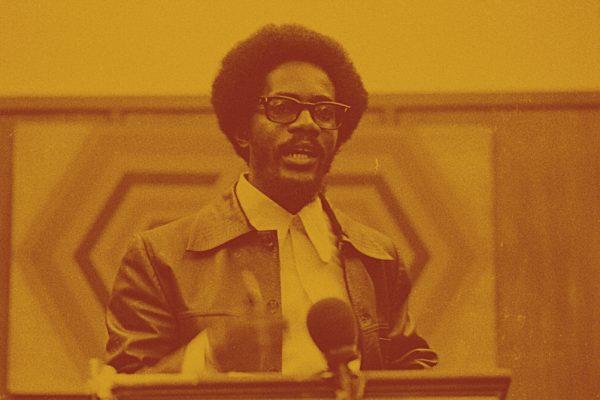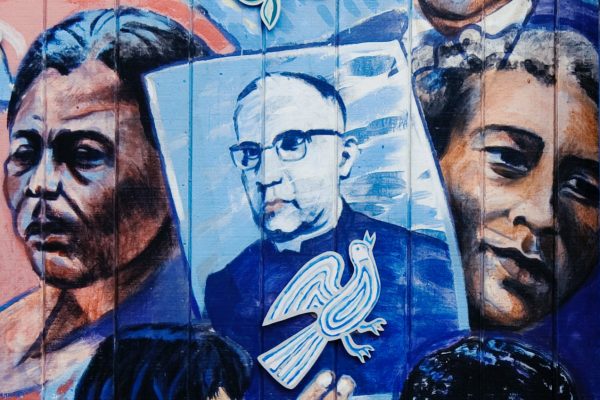There was a time when the world spoke of “Venezuelan Exceptionalism.” For nearly half a century—while Argentina, Bolivia, Brazil, Uruguay, and Paraguay were military dictatorships, the Andean nations were trapped in a carousel of coups d’état, and violent civil insurgency seemed ubiquitous—Venezuela was South America’s only stable and functional democracy. Today that exceptionalism cuts the other way. As Latin America rises, Venezuela is a backwater, starkly divided on social and political grounds and wantonly violent: a world leader in kidnappings, murders, and prison riots. It is a country with a broken heart.
And now, with President Hugo Chávez dead from an unspecified cancer at just 58 years of age, things look bleaker than ever. There were times when I—long an unapologetic opponent of Chávez and his revolution—dreamed that an early death for El Comandante might save Venezuela. No such luck. In his short time in charge, Nicolás Maduro, the successor, has already proven himself to be as erratic as Chávez, a bit meaner, and far more insecure.
Yet I find myself traipsing into the backwoods of my own conviction. What if, in rejecting Chávez, I unwittingly placed myself on the wrong side of history? In the few days since the announcement of his death, I have found myself returning to this question often. Am I simply feeling compassion for a fellow person suffering and dying from terrible illness? Is it empathy for the millions who have responded to Chávez’s death with earnest sadness? Or perhaps, having so often spoken ill of the now dead, I have guilt on my conscience.
In 1992, when Chávez first rose to fame following a failed coup attempt against President Carlos Andrés Pérez, I was ten years old. I remember watching the footage of his surrender, but little else of the bereted man on TV.
I certainly knew who he was by the time he ran for president in 1998. Venezuela was in a deep, multi-decade recession, with international crude selling at around $8 per barrel and the Latin American debt crisis front and center. The pact that until then had seen the two major parties trade off turns at the helm was largely discredited. And suddenly this energetic and charismatic soldier, recently freed from prison, was flush with talk of equality and a fresh start. Many saw him as a way out of the malaise, and even among those who did not support him, including much of my family, there was a sense that Chávez highlighted the flaws in the status quo. He was a sign of the changes that needed to come, if not the change itself. And, at the very least, he was entertaining.
How wrong they were. It did not take long for me to realize that, to Chávez, the country’s future did not have much use for its current middle class: hard-working men and women who were treated increasingly like enemies of the state. Much of my family started to leave Venezuela. The first wave was seeking greener pastures; later they would leave out of fear.
Yet while I may have disagreed with Chávez and disliked the direction he was steering the country, my real, personal struggle against the Venezuelan regime began with the demonstrations of May 2007. Chávez had closed down Radio Caracas Television, thereby silencing the sole remaining national broadcaster critical of his government. I joined thousands of protestors, mostly students, who descended on Caracas’s Plaza Brión. While government loudspeakers warned us to remain calm, police fired teargas, rubber bullets, and water cannons into the crowd.
I staggered away from the chaos. Although a vinegar-soaked rag covering my mouth and nose staved off total physical collapse, the mixture of teargas and sweat had caused me to expel my contact lenses. Once the twin adrenaline shots of fear and indignation subsided, I faced a long, largely blind, walk home. Squinting, crying, and filthy, I was reborn. At that moment, I hated Hugo Chávez. He wasn’t misguided, he wasn’t a comical buffoon, and he wasn’t a sign of change. He was horrifying: a violent and cruel despot who ruthlessly crushed dissent, even from unarmed students, and threatened the human rights of anyone who disagreed with his policies.
Six years later I remain dedicated to this conviction. In that time I have written op-eds and long analytical articles, appeared on foreign television and NPR, and spent countless hours blogging, networking, and commiserating with other dissidents. I write a weekly political column in one of the highest-circulating independent Venezuelan newspapers that is consistently critical of the Chavista government. For nearly a year heading into legislative elections, I worked for an opposition-led municipal government that presided over Petare, a large and dangerous slum. I submitted myself to the daily perils of the barrios in hopes that I might be able to knock a new kink into that tired trope: “The poor love Chávez, with good reason.”
Not that there isn’t a grain of truth to the clichés. Chávez took advantage of a huge rise in the price of crude oil to pay for social programs. While much of this bonanza has gone into flashy and unnecessary displays of international largesse—such as procuring submarines and giving away oil as far afield as Boston—extreme poverty has fallen domestically, and the most basic health services, food, and shelter are more accessible than they were before. Community sports and music programs likewise have more funding and offer new paths out of poverty. At the same time, other opportunities have disappeared with the wholesale flight of the middle class, and thanks to price controls and expropriation that harm the private sector.
Whether some other government—similarly blessed with an extended oil windfall yet less determined to retain power at any cost—could have made the same social investments will forever remain an open question. The Chavista government was not the first in Venezuela to place the poor at the center of the national conversation, and it won’t be the last. Despite the occasional neoliberal flare up, Caracas always returns to its roots: a large, paternalistic state dedicated to turning petrodollars into popularity through redistribution and social assistance.
My own re-assessment of Chávez has been excruciating—but it is also vital.
It’s also not clear if Chávez was genuinely concerned about improving the lives of the poor or merely set on reinforcing their dependence on him. He was surely not one to eschew the luxuries of office for himself or his family. Reportedly, his once-humble parents accumulated around 3,500 acres of property and $16 million in cash during his reign. Expensive oil diplomacy and giveaways to neighbors such as Cuba, Bolivia, Ecuador, and Argentina translated into an unprecedented degree of international clout for Venezuela and her president, but also meant prioritizing prestige over domestic needs.
However, what cannot be denied, what gives me pause as I consider my own resistance to Chavismo, is that the regime did make a large segment of the population feel empowered and relevant for the first time in recent memory. In a few cases these priorities even translated into real results. For instance, it is now easier for poor Venezuelans to obtain the national IDs and passports that give them access to government services and full standing as citizens. And Chávez publicly championed a great many progressive causes even if the end results have been mixed.
In terms of ethnicity, gender, and class composition, Chávez’s government seemed far more representative of the country as a whole than were many precursor governments. Under Chávez indigenous religions, hybrids such as Santeria, non-Catholic Christian sects, and Islam saw their status and visibility upgraded as the traditionally dominant Catholic Church was undermined by the ever-expanding state. Special missions have been set up to care for unwed teenage mothers. And abortion, while still illegal, has in some cases become more accessible and is more openly discussed.
I believe these were small but positive steps, although not many others in the anti-Chavismo camp agree with me.
Having been born in the United States to Venezuelan parents and hopped back and forth between the two countries my whole life, I’ve become accustomed to a certain amount of contextual recalibration. In the United States I am a moderate liberal, a bit suspicious of expansive government but consistently supportive of Democrats thanks to their stances on social issues that are important to me. In 2008 I was a volunteer for the Obama campaign in Miami, where I targeted prospective Cuban and Venezuelan American voters: folks like me.
In Venezuela I’m reactionary. I have always felt that it is the spectrum of political views itself that changes, not me. Thus I was sometimes uncomfortable during my time with the opposition in Caracas, particularly when it came to views on LGBT rights, women’s health, and the proper place for religious and ethnic minorities within society. In these areas, segments of the opposition have it backwards. They are far less progressive than either me or the regime we were fighting against.
Chávez’s sense of social justice and equality were by no means universal, though. Those who disagreed with him politically were left out of the system. Thousands were blacklisted as political enemies, and many were imprisoned on pretense. Others had their livelihoods or property seized without compensation.
Venezuela’s Jewish population in particular came under fire from the regime. In 2004 a Hebrew school in the capital was raided by government forces ostensibly seeking contraband; the children were left locked in a room for several hours, incommunicado. The search found nothing. Similar incidents also took place in 2007 and 2009. Chávez’s bad relations with Israel—diplomatic contact was severed entirely in 2009—and his close relationship with Iranian President Mahmoud Ahmadinejad have likewise contributed to a climate of fear and intimidation. He leveled accusations of disloyalty against Venezuelan Jews who did not renounce Israel, and recent reports suggest that government forces have been systematically monitoring the Jewish population for years.
Contradictions such as these—professing, on the one hand, support for marginalized people, while, on the other hand, harassing and intimidating political opponents and specific minorities—are common in modern Venezuela. What are we to think of them? One must always prioritize among competing issues to determine for oneself if the whole is desirable, palatable, or disastrous.
Taking stock in this way is a sobering exercise—my own re-assessment of Chávez has been excruciating—but it is also vital. In Latin America, with its history of drastic over-corrections from far right to far left, we must discipline ourselves to see the good in the bad, if only to avoid perpetuating the vicious cycle. Indeed, this lesson transcends Venezuela and Latin America. It is readily applicable to the nascent republics of the Arab Spring and even to the increasingly contentious and polarized United States.
I suspect that history will remember Chávez’s fourteen years in power as a time of great missed opportunity. Enormous wealth and a historic personality intersected in a way that seemed to hold great promise—promise that will remain forever unfulfilled, frozen in contrast to bleak reality. The Venezuela Chávez leaves behind is in most ways worse off than the one that was first entrusted to him.
And yet opponents would do well to remember what it was about Chávez—or, more so, what he sought to represent—that did have value. The little piece of the revolution that might have been worthwhile, were it not for all the rest.








